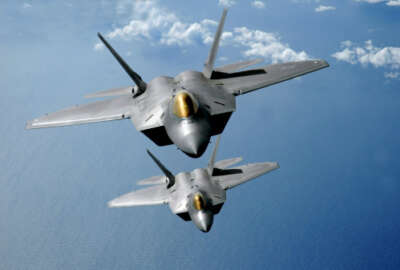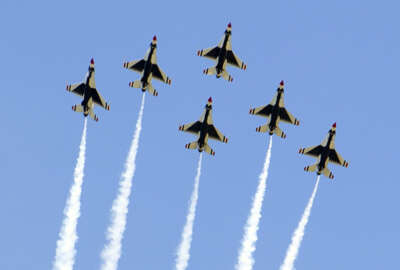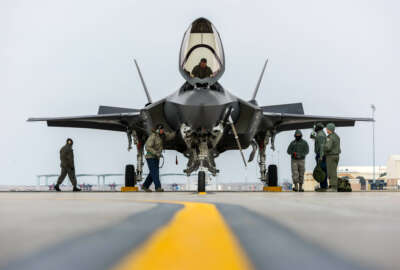
Citing strained force, Air Force cuts dozens of extra duties
Air Force senior leaders routinely point out that their service is the busiest it’s been in decades. They've now decided to partially compensate by scaling back...
Air Force senior leaders routinely point out that their service is the busiest it’s been in decades. They’ve now decided to partially compensate by scaling back duties that aren’t exactly core warfighting functions.
In a Thursday memo, Deborah Lee James, the Air Force secretary and Gen. David Goldfein, the Air Force chief of staff, ordered the reduction or outright elimination of the 29 out of the 61 collateral duties performed by uniformed airmen today.
“We have heard your concerns and frustration on the issue of additional duties that compete with accomplishing our primary Air Force missions,” they wrote. “Operational demands are at unprecedented levels, yet our force us smaller than it ever has been. In meeting with Airmen at installations around the globe, we have heard consistently that additional duties assigned at the unit level affect our ability to focus on core missions, which in turn impacts our readiness.”
The collateral duties the Air Force is cutting back were picked by an “Airmen’s Time” task force whose job was to determine which ones are required by statute or the Office of Personnel Management and which are in the Air Force’s control to change. Some of the 29 tasks will be transferred to civilians or contractors, some were deemed to be outdated, and some, officials decided, simply don’t require a uniformed airman to be trained and designated at every single Air Force unit.
Among the ones being eliminated entirely (click here for the full list) are web page maintainer, unit tax adviser, public affairs representative, self-aid and buddy care monitor, destruction officer and functional area records manager.
Other tasks, such as cybersecurity liaison, awards program manager, government purchase card approving official, Defense Travel System administrator and deployment manager will be transferred to commanders’ support staff at the squadron level, which, officials said, will require some new civilian hiring.
“Consequently, we are working to reestablish the CSS as a core part of the squadrons that are large enough to warrant them,” James and Goldfein wrote. “For squadrons too small to warrant a CSS — those duties should be accomplished by a group or wing-level CSS — or not at all if the commander deems them non-critical. Until the new CSS decisions are implemented and manpower is healthy, commanders are empowered at all levels to consolidate CSS-assigned duties as appropriate, and/or discontinue non-critical duties beyond their ability to resource.”
Will the upcoming presidential transition impact your decision to retire? Take our online survey.
Air Force leaders said the additional duty cutbacks were only a first step. The task force’s next job is to review the computer-based training programs the Air Force requires of its troops to decide which ones can be safely eliminated.
By Oct. 1, officials will formally revise the Air Force instruction that governs collateral duties, and the Air Force Inspector General will update its inspection procedures so that units won’t get dinged for not performing duties that have been done away with.
Also, this fall, the Air Force will create a new screening process in its headquarters, scouring all new Air Force policies to make sure they’re not inadvertently creating new additional duties that aren’t absolutely needed.
“The goal is to prevent unchecked growth of these functions in the future,” James and Goldfein wrote.
Read more of the DoD Reporter’s Notebook.
Copyright © 2025 Federal News Network. All rights reserved. This website is not intended for users located within the European Economic Area.
Jared Serbu is deputy editor of Federal News Network and reports on the Defense Department’s contracting, legislative, workforce and IT issues.
Follow @jserbuWFED





